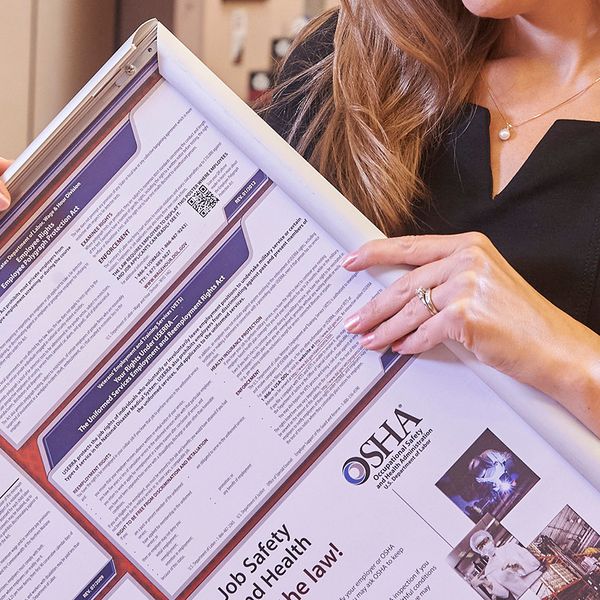Check your posting list twice – you might not be done yet
If your company needs a new or updated labor law poster for 2025, pat yourself on the back for getting ready to display it in January.
Don’t get too smug, however. You might have additional tasks to check off your list. The revised Connecticut paid sick leave law is just one example of how new and updated labor law posting requirements require a closer look.
Don’t forget remote workers
From posters about minimum wage to workplace discrimination to paid sick leave, each labor law posting is required by a separate law. Under some of these laws, employers must make sure remote workers have access to the posting.
When the revised Connecticut sick leave law takes effect on January 1, covered employers need to make it available to employees who telework or perform their jobs through a web-based or app-based platform.
The Connecticut law gives them several options for doing this. It allows them to send information via electronic communication, or conspicuously post the poster on a web-based or app-based platform.
There are electronic posting requirements in seven other states as well, and while each one has its own nuances, placing an electronic version of a labor law poster on a readily accessible company intranet is generally an acceptable way to comply.
Even when there is no requirement to use electronic labor law posters, they’re always a good idea when a company has remote workers. They’re highly recommended by the U.S. Department of Labor and are a great way to make sure all employees are made aware of their rights under employment laws.
Do you need a Spanish poster?
Some laws also require employers to display a posting in a language other than English. The Connecticut paid sick leave posting checks that box as well.
The law requires employers to display the posting in both English and Spanish. Some laws with a language requirement stipulate that a posting needs to be displayed in a language other than English only if an employer’s population has a certain percentage of employees commonly speak another language.
The Connecticut law does not have that caveat, however, and requires both English and Spanish postings to be displayed.
There are only a few states with a similar requirement. Colorado, the District of Columbia, and New Jersey have at least one posting that must be displayed in English and Spanish. Arizona and New Mexico have bilingual postings that must be on the wall.
In other states with posting requirements that mention Spanish or another language, a posting in a language other than English is only needed when the language makeup of the workforce calls for it. The federal Family and Medical Leave Act posting, for example, must be displayed in a language other than English if a significant number of employees are literate in that language.
Even when it’s not mandatory, it’s always a best practice to post labor law posters in a language your employees can read and understand.
Is a notice required?
A posting law might call for employers to take an additional step and notify employees of their rights under the law.
When a notice is required, it must be provided to the employee. Each law is a little different, but in general this can be done by:
- Handing a physical document to the employee
- Emailing the document to the employee
- Mailing a document to the employee
Some laws also allow a notice to be included in a company handbook or placed on the company intranet.
The Connecticut Paid Sick Leave law requires employers to provide a written notice to each employee as of January 1, 2025. It also needs to be provided to new employees.
Key to remember: When you put an updated poster on the wall, you might not be done. Check to see if the law requires electronic postings for remote workers, a posting in a language other than English, or a notice that must be provided to workers. Noncompliance can result in fines or an increased risk for an employee lawsuit.




















































